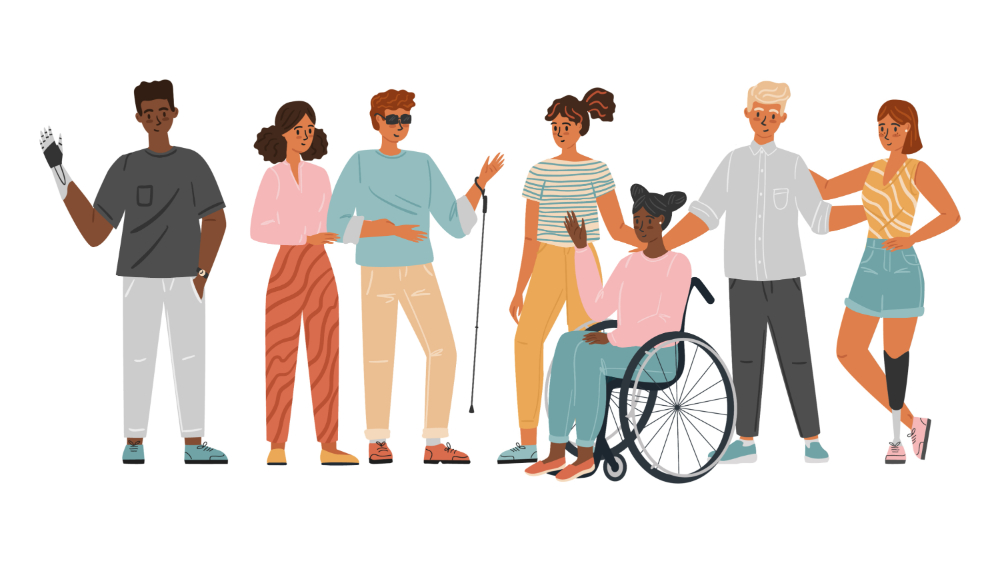A virtual panel organized by Channel 4 has shed light on the findings of the recent Access into Action Industry Access Survey. The Wednesday panel was moderated by Channel 4 journalist Jordan Jarrett-Bryan, and included well-known industry figures like screenwriter Jack Thorne and producer Bryony Arnold.
The Access into Action survey was conducted in late 2022 as a joint effort by Channel 4 and Amazon Studios U.K. as part of an ongoing effort to increase accessibility and inclusion in Britain’s entertainment industry. The anonymous questionnaire surveyed 105 organizations spanning production companies, broadcasters and streamers.
The findings have revealed troubling statistics, like the fact that 25% of surveyed establishments were physically inaccessible, and the same proportion had no functioning accessible toilets. While acknowledging that 75% of respondents rented their production offices, Channel 4 Disability Lead Ally Castle stated that this could be a stepping stone for future conversations with landlords regarding improvements in building accessibility.
Castle also pointed out the potential for improvement in the area of inclusive health and safety measures, citing a lack of visual fire alarms, inconsistent use of personal emergency evacuation plans, and the absence of grab rails and surface hazard warning surfaces as examples.
Other issues discussed included the need to keep accessibility in mind when scouting for production locations, and an acceleration in the progression of disabled people into senior decision-making roles. Castle also noted that while support is available in many areas, broadcasters and streamers need to better their communication regarding the existence of such support.
“We want to see full inclusion by 2030,” said Miranda Wayland, head of international strategy and content for diversity, equity, inclusion and accessibility at Amazon Studios U.K. “And we think that this is obtainable through practical, tangible steps we can take together.”
Bryony Arnold, award-winning producer and co-director of Deaf and Disabled People on TV, said she was encouraged by the report showing that 75% of TV offices surveyed were physically accessible. “In my personal experience working in a lot of companies, I physically can’t even get through the front door, so this is slightly heartening to hear,” added Arnold, who is a wheelchair user.
In her comments, Arnold entreated industry leaders to hire outside their usual crew. “I understand the pressures within the time constraints, but by opening up your pool of talent across all the diverse spectrums, you’re going to bring in people with different perspectives and unique talents.”
Arnold’s sentiments echoed that of another Channel 4 panel earlier this year, led by sound recordist Emma Butt, a long-time champion for increasing diversity in post-production.
Also part of the panel was award-winning screenwriter Jack Thorne, who is known for his work in films like “Wonder,” “Enola Holmes” and “His Dark Materials.” Thorne had revealed his autism diagnosis earlier this year, and said that the survey, while brilliant, was only the start of an investigation to better the “abysmal figures of disabled people in television.”
“We’re talking about a whole raft of different accesses,” said Thorne. “We’re looking at anything that is exclusive or exclusionary in TV, and we’re discovering a wealth of them.”
The panel noted that it would be easier for employers to actively make their hired talent feel comfortable in their roles rather than waiting for them to bring it up. “Ask questions as you go along,” said Clare Brown, controller of production finance at Channel 4. “Has anything changed for you? Did you know this support is available? Is there anything you need?”
It is too late to consider accessibility only when an issue emerges, said Dan Grabiner, who is the head of U.K. originals at Amazon Prime Video. “It has to be built into the very beginning of the discussion.”
“And that way, everyone wins.”


